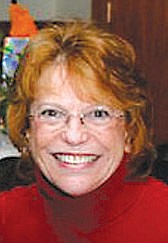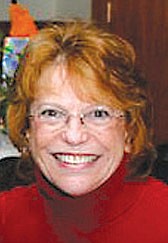Putting a face on Alzheimer's disease
"After my mother had passed away from Alzheimer's, I began noticing my memory was slipping, even though I was only in my late 50s," Susan said on Pacific Neuroscience Institute's website. She said that in the beginning, it was simply forgetting a name or the right word, but it got progressively worse. Sometimes she couldn't remember her children's names.
Knowing that Alzheimer's disease often runs in families, she got tested for the ApoE protein genetic marker and discovered that she had a thirty percent chance of developing the disease. But, so far, her story is a positive one. She changed her diet, sleep habits, and exercise routine and, with a hormone balance regimen, has shown signs of improved brain function.
Alzheimer's has no cure; typically, the stories are more about deterioration than remission. However, some people take the diagnosis in stride and, with determination to improve their lifestyle, thwart the inevitable for at least a while. Many even give back to the communities they live in.
Of the many stories I read online, the most common thread from patients and caregivers is to keep a positive attitude. The Manitoba Alzheimer's Society's website quotes Gary: "When I was diagnosed, I took a positive approach and said, 'Okay, this is who I am; it's part of my life.' I decided to maximize what I've got rather than be depressed about it."
On the Alzheimer's Association's website, Lee says that he refuses to worry about the fact there's no cure. "I prefer to be matter of fact with regard to my diagnosis and I spend more time out in the community … if there's anything I worry about it is my family. Family and friends are the best medicine."
Here in Idaho, 27,000 people have been diagnosed with Alzheimer's. According to Idaho Health and Welfare's website, there are 65,000 Idahoans providing care to someone with the disease.
"In 2021, Idaho Legislators provided funding to form the Idaho Alzheimer's Disease and Related Dementias (ADRD) Program as a public health approach to dementia in Idaho. The Idaho ADRD Program's mission is to expand ADRD awareness, educational opportunities, supports, and services," they say. If you're interested in reading more, go to ADRD@dhw.idaho.gov.
AA says the most common sign of Alzheimer's disease is forgetting recently learned information. This includes forgetting an important date or event, asking the same question repeatedly, and increasingly needing to rely on memory aids or family members.
"Some people living with dementia may experience changes in their ability to develop and follow a plan or work with numbers. They may have trouble following a familiar recipe or keeping track of monthly bills. They may have difficulty concentrating and take much longer to do things than they did before," AA says.
Some people find it hard to complete daily tasks such as driving to a familiar location or remembering the rules of a favorite game. People with Alzheimer's may lose track of time or forget where they are or how they got there.
For others, vision problems occur. "This may lead to difficulty with balance or trouble reading. They may also have problems judging distance and determining color or contrast, causing issues with driving," AA explains.
"People living with Alzheimer's may have trouble following or joining a conversation. They may stop in the middle of a conversation and have no idea how to continue or they may repeat themselves."
They may put things in unusual places, lose things, and accuse others of stealing. They may exhibit decreased or poor judgment. This can affect how they deal with money or their personal hygiene. It's common for a person with Alzheimer's to withdraw from hobbies and social activities.
"Individuals living with Alzheimer's may experience mood and personality changes. They can become confused, suspicious, depressed, fearful, or anxious. They may be easily upset at home, with friends or when out of their comfort zone."
Susan wrote a letter to her husband urging him to divorce her and remarry as her disease progresses. She said she didn't want him to live out his life for her or alone. So far, she hasn't had to share the letter with him, and she credits her medical team for that.
Kathy Hubbard is a member of the Bonner General Health Foundation Advisory Council. She can be reached at kathyleehubbard@yahoo.com.



